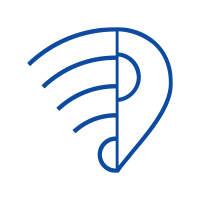Cloud Computing Degree Track Overview
Introducing the Bachelor of Science in Information and Cybersecurity Operations with a track in Cloud Computing. This comprehensive degree covers all aspects of computer and information systems within modern organizations, including operating systems, software programs, networking, and cybersecurity. Students gain hands-on experience in planning, designing, implementing, and supporting these critical components.
With a specialized track in Cloud Computing, students also explore the rapidly evolving field of cloud services—delivering infrastructure, platforms, and software via the internet. Cloud computing is revolutionizing how businesses operate, offering new opportunities to increase flexibility, efficiency, and agility by providing access to essential business and technology tools anytime, anywhere.




 ECPI University is accredited by the Southern Association of Colleges and Schools Commission on Colleges (SACSCOC) to award associate, baccalaureate, and master’s degrees. ECPI University also offers credentials such as certificates and diplomas at approved degree levels.
ECPI University is accredited by the Southern Association of Colleges and Schools Commission on Colleges (SACSCOC) to award associate, baccalaureate, and master’s degrees. ECPI University also offers credentials such as certificates and diplomas at approved degree levels.
